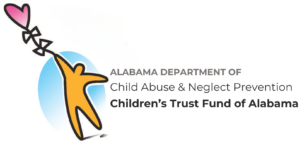Over 21 million Americans are suffering from substance use disorders and many more are at risk. If you are struggling or worried about a loved one, you can learn more about substance use disorders here.
Addiction, the severe form of a Substance Use Disorder (SUD), is a chronic, relapsing brain disease that is characterized by compulsive substance-seeking and use despite harmful consequences.
It is considered a brain disease because in some people, substance use changes how the brain functions. These changes make it progressively more difficult to stop the unhealthy behaviors that are common among people with an active SUD.
In the United States, 1 in 7 people are struggling with Substance Use Disorder. On average, we lose 174 people a day to drug overdoses, and that number climbs to 415 if you factor in alcohol-related deaths.
Substance Use Disorders are diagnosed by assessing cognitive, behavioral, and psychological symptoms. SUDS commonly develop gradually over time. With repeated substance abuse, SUDs grow more severe, impairing the brain systems that control rewards, stress, memory, and judgement. As a result, people with SUDs may struggle to feel the same levels of happiness.
But there is good news – Substance use disorders are preventable and treatable. Recovery is possible!
Advancements have been made in assessments, treatment, recovery supports, and medications. Remaining in treatment for an adequate period of time is critical, and long-term recovery support is often needed.
Many factors affect a person’s risk for developing a SUD, but some of the most important factors include genetics, family history, and exposure to substances. Realistic assessments of the risk factors with a peer or family member can be empowering.
Although nearly half of Americans have a family member or close friend who has had a Substance Use Disorder (SUD), most people don’t speak openly about these disorders due to a lack of understanding about the illness and the stigma that unfortunately remains associated with it. This reluctance to speak plainly instills the idea that the topic is off-limits, especially when an individual is struggling. This reinforces the shame and isolation so common in the experience of SUD.
Understanding the role of genetics in SUD enables both adults and adolescents to take critical steps to boost protective factors and reduce other risk factors, for example by delaying initiation of substance use. Parents should make sure adolescents know that if they are worried about their own substance use or that of a friend, they should ask for help without fear of punishment.
The earlier a person seeks help, the better their chances for a full recovery. Many individuals struggling with SUD don’t know how to assess their own use and are too afraid to ask for help until their condition has progressed dramatically.
As with many other diseases, vulnerability to SUD differs from person-to-person, and no single factor determines whether someone will become addicted. In general, the more risk factors a person has, the greater the chance that using substances will lead to a SUD.
As with many other diseases, vulnerability to SUD differs from person-to-person, and no single factor determines whether someone will become addicted. In general, the more risk factors a person has, the greater the chance that using substances will lead to a SUD.
If your loved one starts behaving differently—such as acting withdrawn, frequently tired or depressed, or hostile—it could be a sign he or she is struggling with a Substance Use Disorder (SUD).
Friends and family may overlook such signs, believing them to be temporary (due to stress or puberty) or avoid confronting the changes for fear of offending or further distancing their loved one.
Other signs include:
- Disinterest in activities that were previously enjoyable
- Change in daily routine
- Changes in mood
- Change in weight or appearance
- Change in eating or sleeping habits
- Decline in performance at work or school
- Change in peer group
- Secrecy regarding the phone
- Tendency to disappear for hours at a time
- Deteriorating relationships
- Inability to be present when in conversation
Because SUD is a progressive disease, intervening early greatly increases the likelihood that the person will recover. Take warning signs seriously and try having an honest conversation with your loved one. You can offer to help them get an assessment—the critical first step to getting treatment.
If your child is struggling, set up a doctor’s appointment with a provider who can screen for SUD and other mental health conditions using standard assessment tools, and refer your child to an appropriate specialty treatment provider if needed.
Not all people who are struggling with a SUD enter treatment willingly. Because this is a particularly sensitive and scary juncture for the person who is struggling, try to be a pillar of support and patience while prioritizing getting them in to see a doctor with experience treating SUDs.
Learn More:
Types of Substance Use Disorders: https://www.addictionresourcecenter.org/typesofsubstanceusedissorders
Drugs, Brains, and Behavior: The Science of Addiction (NIDA): https://www.drugabuse.gov/publications/drugs-brains-behavior-science-addiction/drugs-brain
Local Resource and Efforts about Opioid Addiction: https://knowdope.org/
The Opioid Overdose Crisis: https://www.addictionresourcecenter.org/theopioidoverdosecrisis
Electronic Cigarettes Infographic (.pdf)
JUUL Factsheet (.pdf)









